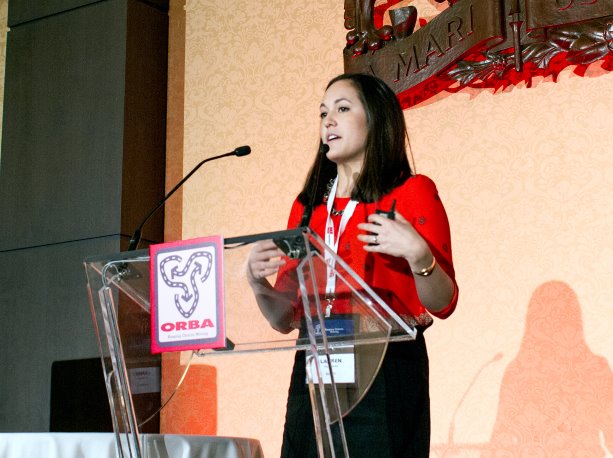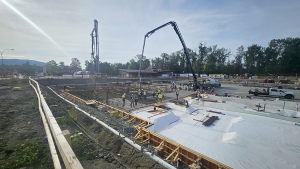For the construction industry to keep up with the rapid evolution in technology trends, owners and employers need to instill a culture of innovation within their companies, say experts.
"When I think about evolution in construction, the one challenge I see that we maybe haven’t evolved as much as we should have," said Gregg Shoppman, principal. FMI Corp.
Shoppman points out that, on a macro level, the construction industry has not changed much over the last 50 years, relying on the same methods to complete jobs.
Although he’s not expecting the industry to create any technological breakthroughs, he urges them to utilize the tools that are already widely available in order to evolve and improve best practices.
"We’re not making change for change sake, but I’m sure our businesses have to evolve," he said.
"We’re confusing technology and innovation and that’s a dangerous thing."
Bridgit co-founder Lauren Hasegawa echoed a similar sentiment — that the industry can’t afford to sit back as other companies find new ways to be more innovative and efficient.
"What may seem like a stretch of the imagination today, may well be reality tomorrow," she said. "There’s nothing holding us back from adopting those…as an industry we need to decide what makes the most sense and how we embrace these new trends that are coming up."
Before co-founding Bridgit, Hasegawa worked on-site, which made her realize all of the inefficiencies that needed to be addressed.
Bridgit’s first app Closeout creates a paperless method of reporting site deficiencies using a mobile device — allowing communication between contractors and subcontractors
"I was used to using my phone, I was used to using my computer for everything else in my life, but as soon as I got to work I wasn’t doing that," she added.
"I started to think about technology in the industry as a whole and where the gaps were."
According to Hasegawa, some companies have already started to use other existing technology to improve the way they work.
Drones or UAVs (Unmanned Aierial Vehicle) have made their way on to construction sites recently, mainly used to capture aerial images for progress photography.
Hasegawa also says 4D modeling will become more prominent, which would be used to determine which part of a project is behind schedule, on time or ahead of schedule. The fourth dimension in this method represents time.
Some of her other recommendations are more practicial, such as using cloud systems to store data, allowing multiple parties to make real-time changes to a document.
Other upcoming technology trends include the application of consumer products that are already available to the public.
"Google Glass and that armband (Myo), those weren’t designed for construction. Those were designed for consumer use. They were targeting video games and at-home applications, but it’s very easy to start looking at those technologies and apply them onsite as well," she said.
"Really start to think about what you’d like to have onsite and start to voice those concerns because there’s tons of companies out there that are looking for the next problem to solve"
For Shoppman, innovation can also be defined by a company’s attitude toward tackling smaller problems.
Though it’s not a relatively new concept, Shoppman says more companies should use social media, mentioning that it’s a free way to market as opposed to producing newsletters. He also encourages companies to transfer knowledge from its senior employees to its younger ones and to welcome honest feedback from customers in order to improve their business.
"We might have a great organization, but ask the question, what can we do to get better?" said Shoppman. "Sometimes we get tunnel vision in this industry…challenge conventions."
Shoppman and Hasegawa spoke at the recent Ontario Road Builders’ Association (ORBA) 88th Annual Convention in Toronto.











Recent Comments
comments for this post are closed